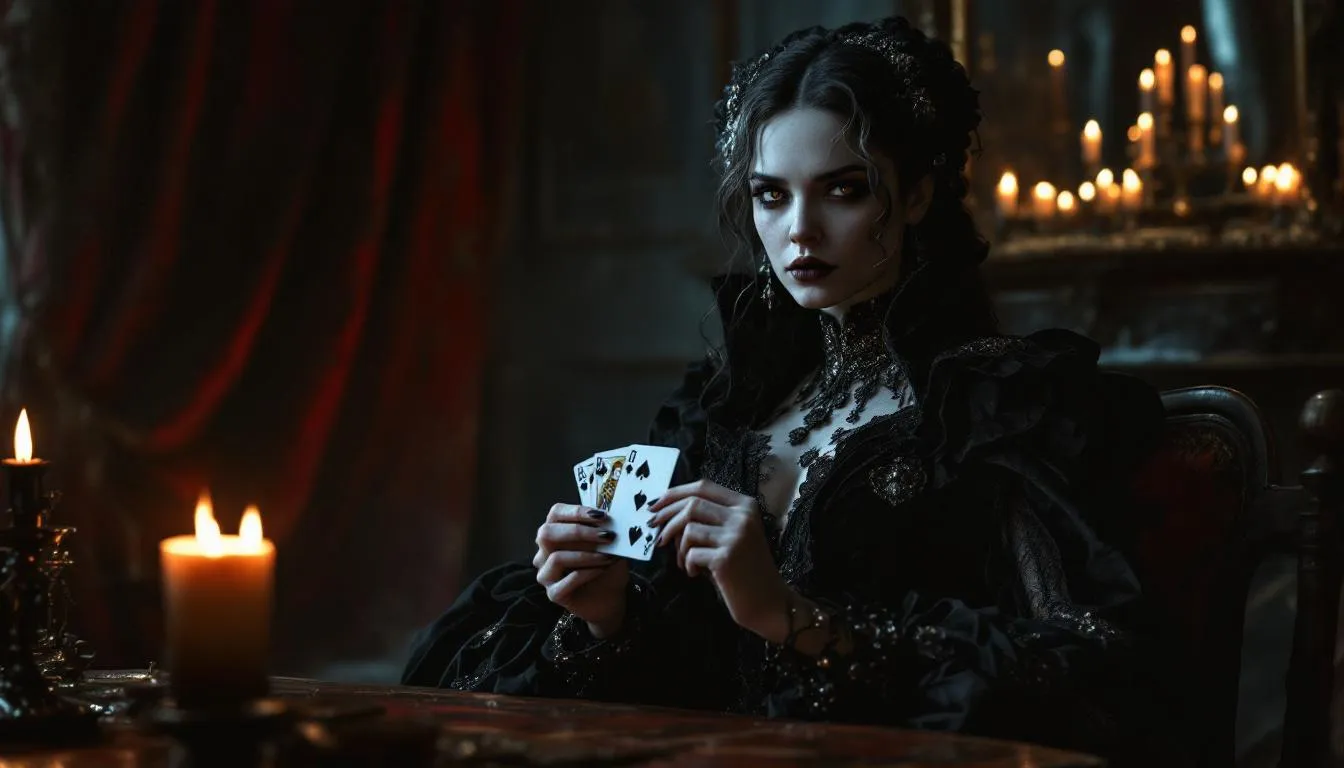Spinning Through History
In the world of storytelling, few themes have proven as captivating and enduring as the theme of gambling. From its psychological grip to its cultural symbolism, gambling has fascinated authors for centuries. The motif of games of chance—whether poker, roulette, or card tricks, including references to Casino Royale—has appeared in some of the most iconic works of classic literature. The concept of gambling serves as a central theme in literature and storytelling, providing engaging plot hooks, shaping characters, and exploring strategic thinking. These stories delve deeply into the thrill of the unknown, the allure of luck, and the often-devastating consequences of obsession. When exploring the theme of gambling in literature, we uncover more than mere entertainment—we confront questions about morality, fate, and the human condition. Within literature, gambling is often regarded as an art form, highlighting its cultural and creative significance throughout history. Today, this narrative tradition continues in the digital age with platforms like Sweepstakes Casino Sixty6, where storytelling and chance intertwine in modern social gaming experiences.
Why Gambling Captivated Classic Writers
For many classic authors, gambling was far more than a recreational vice; it symbolized something deeper—risk as a reflection of character, social class, and existential choice. Many of these writers had a personal interest and passion for gambling, which fueled their vivid and authentic portrayals of casino scenes and the emotional stakes involved. Gambling represents a human attempt to impose control over uncertainty. It is no coincidence that writers used it as a mirror for larger life struggles. In eras marked by economic upheaval and rigid social hierarchies, the roulette wheel became a symbol of fleeting fortune, rebellion, ruin, and even death. This article will discuss how these themes are reflected in classic and modern literature.
Writers used gambling to critique greed, portray addiction, or symbolize the tension between fate and free will, often drawing from underground scenes . As such, gambling in literature often mirrors societal anxieties and personal downfall, wrapped in thrilling drama.
Iconic Works Exploring Gambling in Literature
“The Gambler” by Fyodor Dostoevsky
No exploration of gambling in classic literature is complete without Dostoevsky’s The Gambler. Based on his personal struggles with gambling addiction, the novella is a deeply psychological portrayal of compulsion, emotional instability, and loss of control. Dostoevsky’s own gambling habits appear throughout his writing, influencing both his creative process and the themes of his work. In fact, his engagement with gambling appears to coincide with his most creative period, shaping both his writing and personal development. The protagonist, Alexei Ivanovich, becomes consumed by roulette, swinging between despair and euphoria, unable to resist the allure of risk. Alexei, a young Russian tutor, is indebted and burdened by debts due to his gambling. Much of the action takes place in a hotel and around the roulette table, with Alexei obsessively betting and focusing on reaching a certain point in the game.
What makes The Gambler so impactful is its raw honesty. Dostoevsky doesn’t romanticize the lifestyle—he exposes it as a destructive spiral. Through Alexei, the novel critiques not only gambling, but the social systems that enable obsession and despair. Dostoevsky’s own experiences involved playing different kinds of gambling games, such as roulette and trente-et-quarante, in casinos along the Rhine, and his notes from this period reflect the emotional highs and lows of winning and losing. The pursuit of winnings and the act of betting drive the narrative, and the protagonist’s experiences mirror Dostoevsky’s own struggles with gambling. Dostoevsky also explores similar themes of innocence and societal critique in his novel The Idiot, where characters are often portrayed as foolish or morally blind, further highlighting his interest in the complexities of human nature.
“The Queen of Spades” by Alexander Pushkin

Pushkin’s The Queen of Spades masterfully blends gambling with gothic horror. Throughout the story, Hermann and other characters played cards and engaged in high-stakes gambling, with each hand intensifying the tension and raising the stakes. The protagonist, Hermann, becomes obsessed with discovering a secret card trick that supposedly guarantees victory for the first time. His descent into madness and eventual ruin illustrates gambling’s corrupting power when fueled by greed and superstition.
This short story isn’t just about gambling—it’s about obsession, fate, and the supernatural. Pushkin presents a cautionary tale where gambling becomes a metaphor for a soul sold in pursuit of power and wealth.
“Moll Flanders” by Daniel Defoe
Defoe’s Moll Flanders isn’t a gambling novel per se, but the theme of risk-taking permeates every page. Moll, a woman born into poverty, uses wit and cunning to navigate 18th-century English society. Gambling here takes the form of economic risk, chance marriages, and criminal enterprises.
Moll’s life is a constant game of odds. Defoe shows how she is willing to bet on lovers, fortunes, and new identities, aligning her choices with the unpredictability of the gambling table—every decision could win or cost everything, leading to much talk about her choices.
“The House of Mirth” by Edith Wharton
Wharton’s The House of Mirth explores the subtle, often hidden forms of gambling that exist in high society. The protagonist, Lily Bart, doesn’t play poker or roulette, but she gambles with her social standing, potential marriages, and personal integrity, all while others watch her every move .
Her navigation of New York’s elite social scene is a delicate balancing act—one where a single misstep can bring irreversible consequences. Through Lily’s story, Wharton critiques a world where women must gamble with their lives to secure financial and social survival.
“The Rich Boy” by F. Scott Fitzgerald

In The Rich Boy, Fitzgerald examines gambling not as a literal act, but as a metaphor for life choices among the privileged. The titular character is born into wealth but makes increasingly reckless decisions, believing in his immunity to consequences. His personal relationships and emotional investments become his games of chance.
Fitzgerald’s use of gambling is symbolic, showing how entitlement and detachment from consequences can be just as dangerous as a losing hand, as those around him listen to his reckless decisions .
Literary Archetypes Born in the Casino
The Desperate Risk-Taker
This archetype is central to gambling in literature. Whether it’s Alexei from The Gambler or Lily Bart from The House of Mirth, these characters gamble everything out of desperation. Their risks are often driven by emotion—love, fear, pride—and lead to dramatic consequences.
The Calculated Strategist
Characters like Hermann in The Queen of Spades represent the gambler who believes in control. Their confidence in systems or strategies reflects human arrogance against randomness. These characters often believe they have discovered a winning strategy to beat the odds, only to be confronted by the unpredictability of fate. Their downfall is often more tragic, revealing that intellect cannot overcome fate.
The Seduced Novice
This archetype illustrates the lure of gambling for the uninitiated. Seduced by glamour or the promise of wealth, these characters quickly fall into addiction or ruin. They serve as cautionary figures, warning readers of the thin line between thrill and destruction.
Moral Lessons and Cultural Reflection
Gambling in literature often acts as a tool for moral reflection. Authors across centuries have used gambling to examine ethical boundaries, spiritual decay, and societal inequality. For example, Russian literature often portrays gambling as spiritual corruption, while American literature tends to focus on the pursuit of success or reinvention through risk. Dostoevsky, in novels such as ‘Crime and Punishment’ and ‘The Brothers Karamazov,’ explores the themes of crime and punishment, examining the moral consequences of gambling and other transgressions.
Note: The title page of Dostoevsky’s ‘The Gambler’ (first published in 1867) provides valuable publication details that highlight the novel’s historical significance and its place in the literary exploration of gambling.
The moral undertones vary: some texts condemn gambling outright, while others present it as an inevitable expression of human nature. Either way, the message is clear—gambling reveals who we truly are when the stakes are high.
From Page to Play: How Classic Literature Inspires Today’s Games
Interestingly, themes from classic literature have seeped into modern entertainment, including social casino apps. Today’s games are often infused with rich narratives, character arcs, and thematic visuals. Slot games with literary themes or heroic quests echo the storytelling patterns of traditional novels. Many modern casino games are built on the foundations established by classic gambling stories and literary traditions.
Some platforms, such as Sweepstakes Casino Sixty6, use theatrical elements, recurring motifs, and dramatic animations to emulate literary storytelling. These games may not offer real money prizes, but they craft immersive worlds where every spin feels like a plot twist—an emotional hook borrowed straight from the pages of history’s greatest stories.
Why These Stories Still Resonate Today
What keeps these stories timeless is the psychological pull of gambling—both literal and metaphorical. Just like readers become engrossed in a novel’s suspense, gamblers are drawn into the tension of uncertainty. Works like ‘Casino Royale’ have maintained their cultural relevance for decades, from their original publication to modern adaptations. Recently, a lot of attention has shifted to online gambling platforms, with a lot of stories and books now exploring this growing trend.
Whether it’s the turn of a card or the final chapter of a book, both involve stakes, anticipation, and payoff.
These classic portrayals continue to resonate because gambling reflects life itself—unpredictable, thrilling, sometimes cruel. Through their characters, authors offer insight into how people face uncertainty, confront desire, and wrestle with control.
Recommended Reading List for Gambling in Literature
Looking to explore more? Here’s a list of classic works that beautifully capture the theme of gambling, showcasing both successful and unsuccessful attempts at mastery.
- The Gambler by Fyodor Dostoevsky
- The Queen of Spades by Alexander Pushkin
- Moll Flanders by Daniel Defoe
- The House of Mirth by Edith Wharton
- The Rich Boy by F. Scott Fitzgerald
- The Rocking-Horse Winner by D.H. Lawrence
- Brighton Rock by Graham Greene
- Casino Royale by Ian Fleming (the first novel in the James Bond series, significant as the origin story of the iconic character and its impact on the spy and gambling genres)
Each of these works provides a unique angle—from supernatural suspense to psychological realism—on what it means to take a risk when everything is on the line. Some, like Dostoevsky’s The Gambler, are short novels that can be read quickly, making them accessible while still exploring complex themes such as gambling addiction. Many of these books have received critical review and acclaim for their insightful portrayal of gambling and its consequences.
Final Thoughts: Spinning the Human Condition
In the end, gambling in literature isn’t just about cards or coin tosses—it’s about humanity. Classic writers used the gambling table to explore deeper truths: the search for meaning, the lure of fortune, and the danger of temptation. Whether they win or lose, the characters who gamble reflect our own fears and desires. Ian Fleming, the man behind James Bond, brought his personal passion for gambling into his stories, making the scenes even more authentic. Edward O. Thorp, through his pioneering work and his book ‘Beat the Dealer’, revolutionized blackjack strategy and influenced how gambling is portrayed in literature. And that’s what keeps these stories spinning, century after century, transcending the word of time and addiction .

